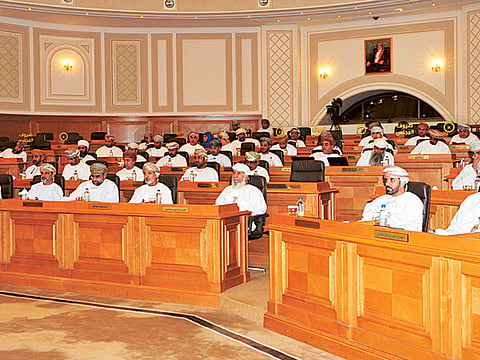‘No plans to ban alcohol in Oman’
Official says there may be more strict regulations on alcohol following Shura request

Muscat: An Omani government official has said that the sultanate currently has no plans to ban the trade and consumption of alcohol as has been proposed by the elected Shura Council.
About 84 per cent of Oman’s Shura Council voted last December in favour of banning alcohol. The proposal was forwarded to the government for approval but has not received a response.
A government official told Gulf News that there were no plans to impose a ban at the moment, but a Ministry of Tourism official said that the ministry may instead impose restrictive regulations over the consumption and trade of alcohol.
Humaid Al Nasri, a member of the Shura Council told Gulf News that the council raised the proposal last December to the Council of Ministers, the cabinet, but no response had been received so far. “In case there is no response, the council will look into other alternatives to constrain the trade and consumption of alcohol in Oman”, said Al Nasri.
Al Nasri added that the proposal was initiated by him, due to what he sees as the severe and social impacts on the community.
Al Nasri said that the proposal would make amendments to article 228 of the penal law to ban the consumption of alcohol and trade as a result of “thousands of appeals from the citizens to free the country from alcohol”.
Al Nasri noted that the government spends more than 50 million rials (Dh475 million) to treat alcoholics nationwide ever year.
According to the National Centre of Statistics and Information, banning alcohol in Oman will have an annual opportunity cost of more than 100 million rials from customs duties levied on importers. Import of alcohol in Oman increased by ten per cent every year from 2010 to 2013.
Nasser Al Balushi, a parliamentary expert, told Gulf News that if such a law is passed it will give the council more strength and power as a legislative body in the country. He added that more elaborate studies are needed before issuing such a decision.
Many nationals supported the decision of banning alcohol. Ahmad Al Mashari believes that the ban will reduce fatal road accidents in the country as well as diseases due to alcohol addiction.
Tourism industry
Earlier, Riyadh Ahmad Ali, an economic expert, noted that such a ban would severely hit the tourism industry in the country, particularly at a time when the sultanate is looking to find alternative sources of income amid depleting oil resources. “It will lead to the flight of investment from Oman which will have a heavy financial toll on the economy”, said Riyadh.
Some nationals believe such recommendations will be shelved, like other such recommendations from the Shura Council.
Nasser Al Hatali noted that the council is a legislative and monitoring body as per the Basic Law of the sultanate but that it does not yet enjoy many legislative powers.
A ban on alcohol may however result in those dependent on the substance to turn to alternatives like cheap, fatal liquors and drugs to meet their needs, said Rami Nasri, a psychologist. “Such alternatives will have more social and health impacts that will be a disaster for the country”.
Currently anyone found producing, consuming or trading alcohol without a permit is liable to a jail term of between six months and three years, or a minimum fine of 300 Omani rials, or both, the council official said.
Permits to buy and drink alcohol are only issued to non-Muslims, in effect restricting alcohol only to visitors to Oman.
Among GCC countries, only Kuwait and Saudi Arabia place a blanket ban on the sale and consumption of alcohol.
Last January, members of Bahrain’s parliament unanimously approved an urgent proposal calling on the government to come up with a time line for gradually phasing out alcohol until it is totally prohibited. The move was made close towards the end of the parliament’s four-year term and has now been referred to the cabinet.
In Kuwait, alcohol was totally prohibited by parliament in 1983 in a three-stage process starting in 1963 with its regulation, then its banning, then criminalising its consumption. Kuwait’s parliament has the most legislative powers among such councils in the Gulf.
Alcohol is however believed to be widely available in both Kuwait and Saudi Arabia through bootlegging networks that sell the banned items at heavily marked-up prices.
Sign up for the Daily Briefing
Get the latest news and updates straight to your inbox



